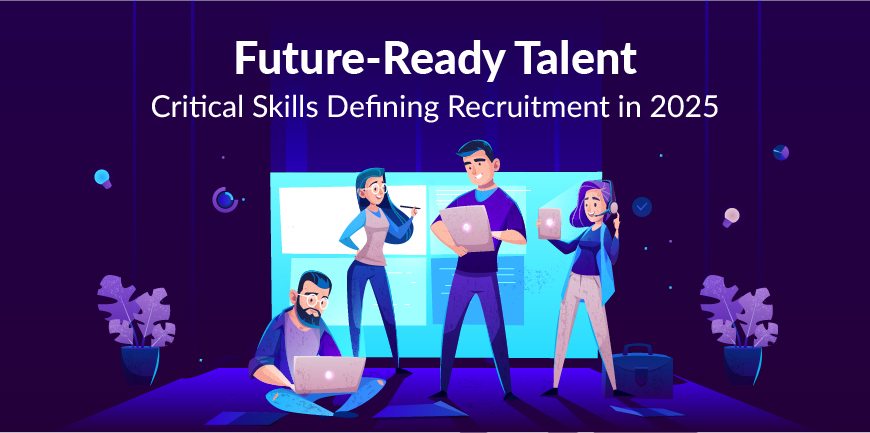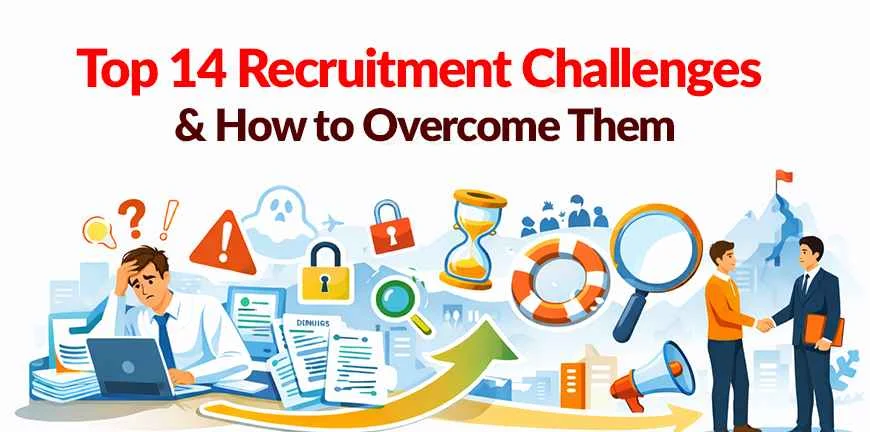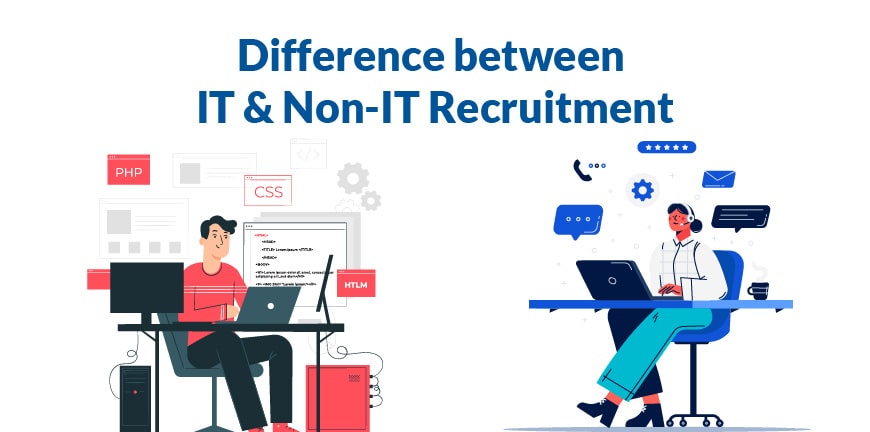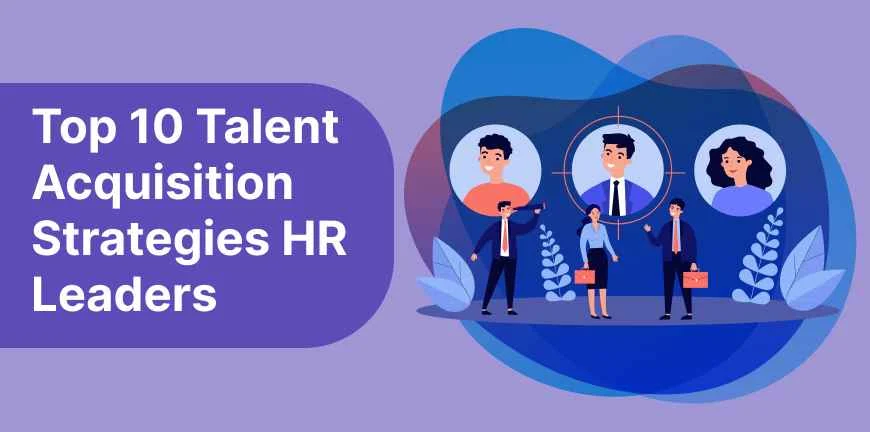
Role of Employer Branding in White-Collar Talent Acquisition
20/05/2025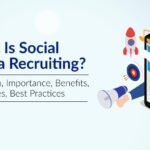
What Is Social Media Recruiting?
21/05/2025The new era of work has dawned. Welcome to the future ready workspace that is reforming recruitment at the drop of a hat. A plethora of factors are influencing the work environment including automation and AI, hybrid work, remote work, etc. Candidate expectations are evolving and 2025 beckons a resilient tech savvy and adaptive workforce that will transform the spectrum of recruitment. It is for recruiters to be aware and understand the significance of critical skills defining future-ready individuals as they would not want to lag in the rapidly changing hiring landscape.
Future-Ready Talent Essential
Technology continues to evolve and accelerate at an unprecedented rate undergoing exponential transformation. The dynamic space now requires high octane agility which traditional skill sets often fail to deliver. It is for organizations to realize and adapt as they embrace the concept and incorporate it in their strategies and functions. They must also contemplate on how they can integrate agility to build robust teams.
Today recruiting individuals exclusively on what they can deliver is simply overlooking the long-term success that is driven by critical strengths namely adaptability, learning ability, leadership qualities. Technologies and tools that are relevant today might be redundant tomorrow. In the modern landscape, there is need for talents who would be capable of inculcating latest information and ideas, reskill when in demand and handle change with conviction.
The work landscape which has shifted due to key drivers like AI , data analytics reshaping roles across industries, a high demand for remote and hybrid workers, DEI initiatives , recruiters must look beyond resumes and focus on individuals who possess a forward looking mindset bringing fresh perspectives to the table, people who are not afraid of change but can lead the change. An agile team of employees will fuel an organization to navigate through the evolving market scenarios, client demands or innovation.
A workforce which is ready to take on the responsibilities of an organization with their resilience, critical thinking skills, collaborative spirit across disciplines, will outshine organizations which are solely focused on individuals with past accomplishments and qualifications.
Top Critical Skills Reshaping Recruitment in 2025
Digital Mastery
In today’s digital world, technology is not restricted to IT departments but percolates into every operation and department of an organization. It could be marketing, operations, customer support, finance, or human resources, digital tools shape the work. Digital fluency becomes the primary expectation and future-ready candidates must display the use of more than one digital platform with agility and confidence. It is the age of AI and automation, and AI recruitment systems have decreased time-to-hire as per research. Hence recruiting individuals require more than basic computer literacy, they must be comfortable with digital communication involving smooth collaboration through AI tools, chat platforms, project management tools and video conferencing. The understanding of tech-enabled workflows and data driven thinking will result in a productive and transparent outcome.
(Infographics) 67% of HR professionals identify increased AI use as a key hiring trend for 2025.
Adaptability & Agility
In 2025, the shift in market demands and geopolitical uncertainties indicate that roles will constantly evolve. Most organizations have drawn the conclusion that it is no longer lucrative to hire individuals based on solely static qualifications or limited experience. They are now prioritizing talents who can flourish during unpredictable times, stay ahead with confidence, and embrace continuous change. Change is a constant and thriving in such situations is key. Today recruiters are actively looking for candidates who have made the cut in roles across sectors demonstrating flexibility, curiosity, and re-skilling abilities.
Infographics (83% of companies now prioritize skills over traditional qualifications such as degrees.)
Emotional Intelligence (EQ)
Remote teams have become the norm with automated workflows streamlining technical tasks and human centric skills gaining momentum and becoming strategically significant. Technology can enhance processes; however, they cannot replace the interpersonal dynamics fostering effective teamwork, innovation, and morale. Soft skills in this environment become an intrinsic part with dispersed teams functioning across time zones, cultures, and communication channels. Organizations are focusing on recruiting individuals who demonstrate strong people skills in virtual environments where they can collaborate seamlessly and build trust. Employees managing conflict constructively transform challenges into opportunities for growth and connection. Candidates with a sense of cultural awareness and sensitivity are good for teams as they enable creating inclusive, safe, and respectful workspaces.
Critical Thinking & Problem Solving
With AI and automation taking over and streamlining repetitive, rules-based tasks, human contribution sometimes is hitting a roadblock. However, humans can do what robots or machines cannot like machines cannot replicate precise judgment, reasoning, strategic insight, and creative problem-solving. In this new realm, organizations must prioritize recruiting individuals who will think beyond daily tasks and not simply execute them but will have the intent to inquire, evaluate, and lead. Rather than following instructions, these individuals try to get an insight about the context and why a policy or a project they will be handling are important. Progress is when individuals respectfully question ethical or professional practices rather than aimlessly walking on a path laid out for them.
Growth and Learning Mindset
The fast-paced landscape of technological advancements and constantly changing business models depict that today’s relevant concepts might be obsolete tomorrow. In this dynamic environment, the definition of top talent is when they are keen on a continuous learning process rather than stagnating with what they already know. Future thinking professionals are willing to keep gaining knowledge in a disciplined fashion not treating it like a one-time task. They have a forward-thinking mindset with proactive learning capabilities and are ready to hone their skills regularly with a curious and open mind. Candidates willing to pursue focused training programs could quickly adapt to specific trends, technologies, or methods.
(Infographics)85% of employers plan to prioritize upskilling their workforce to address skill gaps.
DEI Awareness
DEI is not just a business goal in 2024. it is a key business strategy. Creating an inclusive work environment is expected of organizations by customers, investors, and communities. They now expect organizations to take meaningful action toward creating inclusive environments. So, when organizations recruit talent, they must consider individuals who do not just fit in but contribute to enhancing the inclusive culture, support DEI practices and exhibit empathy, value, and leadership. Individuals enabling to create a safe environment with diverse perspectives advocating equity help the work environment thrive. Organizations should also search for candidates who align with the organizations culture, values, and mission. Especially values associated with shared purpose, collaboration, and communication, fostering fair and inclusive decision making.
(Infographics)83% of employers have DEI initiatives in place in 2025, up from 67% in 2023.
Cybersecurity Awareness
Cyber threats are real, and they are increasing with great sophistication. Companies cannot totally be reliant on their internal technical teams to mitigate these risks and protect sensitive data. With remote and hybrid work becoming a standard model, the attack spectrum has dramatically widened. Organizations while recruiting new talents must see to it that they know how to handle and manage secure logins and ensure secured collaboration when working remotely. A basic understanding of safe data handling and processing fluency in secure practices is not an option but a necessity in today’s era.
How Recruiters Can Adapt in 2025
The rulebook of recruitment is not the same and talent acquisition teams must transform with it. Here’ are a fe ways:
- Update Job Descriptions-Focus more on skills-based hiring using inclusive language.
- Invest in Skill-Based Assessments- Leverage AI tools, games, and simulations to assess critical skills.
- Source from Non-Conventional Talent pools -Look at upskilling platforms, creator networks, etc.
- Use AI Responsibly- AI can be ethical, bias-free, and human-supervised.
Fastest-Growing Job Roles and Market Shifts
| Growth Area | Examples of Roles | Key Stats/Trends |
| Technology & Data | AI/ML Specialists, Big Data Analysts | Tech roles among fastest growing by percentage in 2025 |
| Green & Energy
Transition |
Environmental Engineers, EV Specialists | Sustainability skills in high demand |
| Care Economy | Nursing, Social Work, Personal Care | Significant growth in health and care roles |
| Education | Tertiary & Secondary Teachers | Education roles to see notable growth |
The Future Is Human and Tech
In 2025, It is about blending technology with humanity. Technology is undoubtedly important but if we can sprinkle some heart then the combination becomes exceptional. The best talent brings to the table resilience, emotional intelligence, and purpose along with hard core skills. They have this indelible craving to grow and not stop for anything or anyone. A future ready hiring is prioritizing individuals with skills over background, a system which is tech and humanity enhanced leading the next phase of culture progress and innovation.
Contact Us For Business Enquiry

Amit Saproo
Amit Saproo is the Head of Operations at ALP Consulting with nearly 17 years of experience in Executive Search, RPO, Leadership, and IT & Engineering recruitment. He leads nationwide recruitment programs across Technology, BFSI, and R&D domains, driving strategic hiring solutions for diverse client needs. Amit excels in building and managing high-performance teams that deliver scalable, end-to-end recruitment and consulting services.

